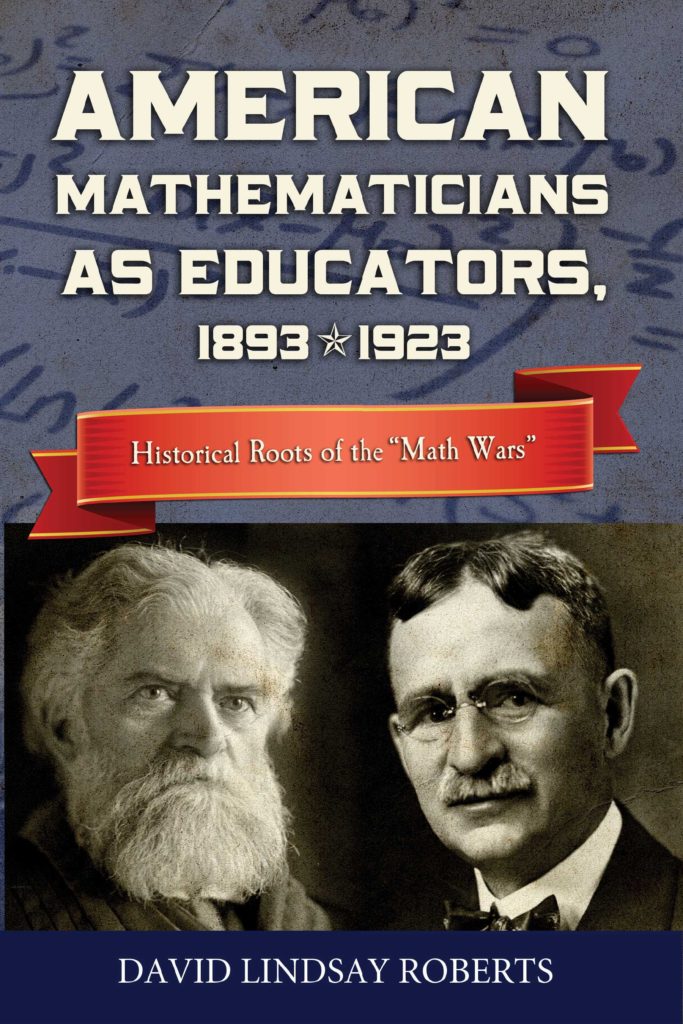Reviews
In this engaging account, historian David Lindsay Roberts traces changes in American attitudes towards school mathematics from the early nineteenth century to the 1920s. He analyzes the professional goals, educational aims, and rhetorical flourishes of carefully selected mathematical astronomers, research mathematicians, university administrators, educators, and psychologists. The book should intrigue all those who seek to understand the place of mathematical learning within the American experience.
Dr. Peggy A. Kidwell
Curator of Mathematics, Smithsonian’s National Museum of American History
What should American school children learn about math, and how should they learn it? And what role should university mathematicians play in devising school curricula? These are urgent contemporary questions, of course, but they are also deeply historical ones. David Roberts has provided our first detailed chronicle of the initial salvos in our so-called “math wars.” Anyone who wants to understand our current battles–or to suggest a truce in the future–would be wise to follow Roberts into the past.
Jonathan Zimmerman
Professor of Education and History and Director of the History of Education Program, Steinhardt School of Culture, Education, and Human Development, New York University
John L. Rudolph
Professor, Departments of Curriculum and Instruction, History of Science, and Educational Policy Studies, University of Wisconsin-Madison
Competing theories for the improvement of mathematics education abound in history. This account focuses on ones that uniquely helped to spur the beginning of the modern scientific and technological advancement of the United States. Roberts’s treatment is objective, detailed, and nuanced; public pronouncements are carefully weighed against actions and private documents. The ironic misunderstandings that not infrequently arose amongst the main actors and commentators are deftly handled. Altogether this work provides a valuable background to current discussions on educational reform, which often appear to be re-inventing the wheel.
Albert C. Lewis
Educational Advancement Foundation, Austin, Texas

